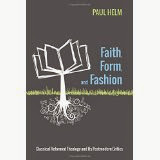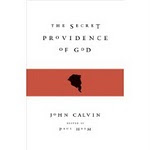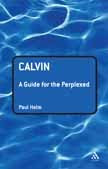September will include the closing blog, at least for the time being, on Princeton theology's attitude to faith and reason, particularly to 'right reason'. So we shall round things off by a short post on Turretin's account of the subordinate but positive role that the senses play in theology. It is in these accounts of the place of reason and the senses that Reformed theology, in common with the approach of Christian theology more generally, emphasises that grace builds on nature. Turretin's Institutes was of course the systematic theology text at Princeton prior to the publication of Charle Hodge's Systematic Theology in 1875. (As it was in the early days of the Free Church College, Edinburgh, under Chalmers, Cunningham, and Smeaton.)
Later in the month I shall post a piece on Pascal's Wager and religious scepticism, suggesting a positive place for a version of that argument in situations of spiritual doubt.
I've recently been reading Calvin, Classical Trinitarianism and the Aseity of the Son, by Brannon Ellis. (O.U.P) This erudite but difficult book set me thinking again about the eternal begottenness of the Son, and the procession of the Holy Spirit, and the outlook of the English Independent divine Thomas Ridgley on these matters, which while so mysterious have yet been so divisive.
Thomas Ridgley (1687-1734) was a firm and clear
Trinitarian, but expunged from his understanding of the Trinity was any suggestion of causal
or ontological dependence of the deity of the Son or Spirit, on that of the
Father (for did they not each have the one essence the one God?); or of their persons
(‘Personalities’) on the person of the Father (or, in the case of the Spirit)
on those of the Father and the Son, for were not each ‘as much independent, and
underived, as the divine essence’? (A Body of Divinity, (1731-33) new ed.,
revised, corrected and illustrated, with notes by Rev. J. M. Wilson, Edinburgh,
1844) (I. 263) Besides which, he writes in a firm, no-nonsense style, with an independence of mind characteristic more of the 18th rather han the 17th century.









